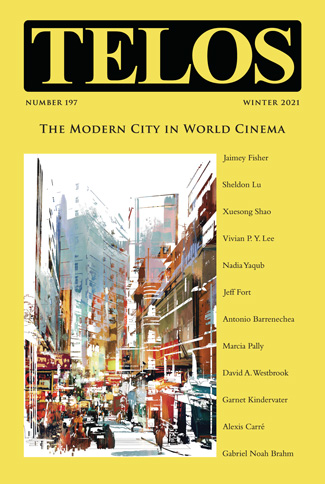In today’s episode of the Telos Press Podcast, David Pan talks with Xuesong Shao about her article “Restoring and Reimagining Socialist-Built Cities: Wang Xiaoshuai’s ‘Third Front Trilogy,’” from Telos 197 (Winter 2021). An excerpt of the article appears here. In their conversation they discuss the history of the Third Front Movement in China; how migration is depicted in Wang Xiaoshuai’s Third Front trilogy; the article’s approach to the issue of nostalgia; the relationship of nostalgia and ruination in Red Amnesia; the ways in which Wang Xiaoshuai uses the male gaze to reinforce gender stereotypes; the personal versus the historical in Eleven Flowers and how elusive personal recollections align with the master narratives of the nation-state; and the different ways that Wang Xiaoshaui and Jia Zhangke depict places of memory and places of history. If your university has an online subscription to Telos, you can read the full article at the Telos Online website. For non-subscribers, learn how your university can begin a subscription to Telos at our library recommendation page. Print copies of Telos 197 are available for purchase in our online store.
|
Telos 197 (Winter 2021): The Modern City in World Cinema, edited by Jaimey Fisher and Sheldon Lu, is now available for purchase in our store. Individual subscriptions to Telos are also available in both print and online formats.
|
||||
|
Telos Press Publishing · PO Box 811 · Candor, NY 13743 · Phone: 212-228-6479 Privacy Policy · Data Protection Copyright © 2025 Telos Press Publishing · All Rights Reserved |
||||



